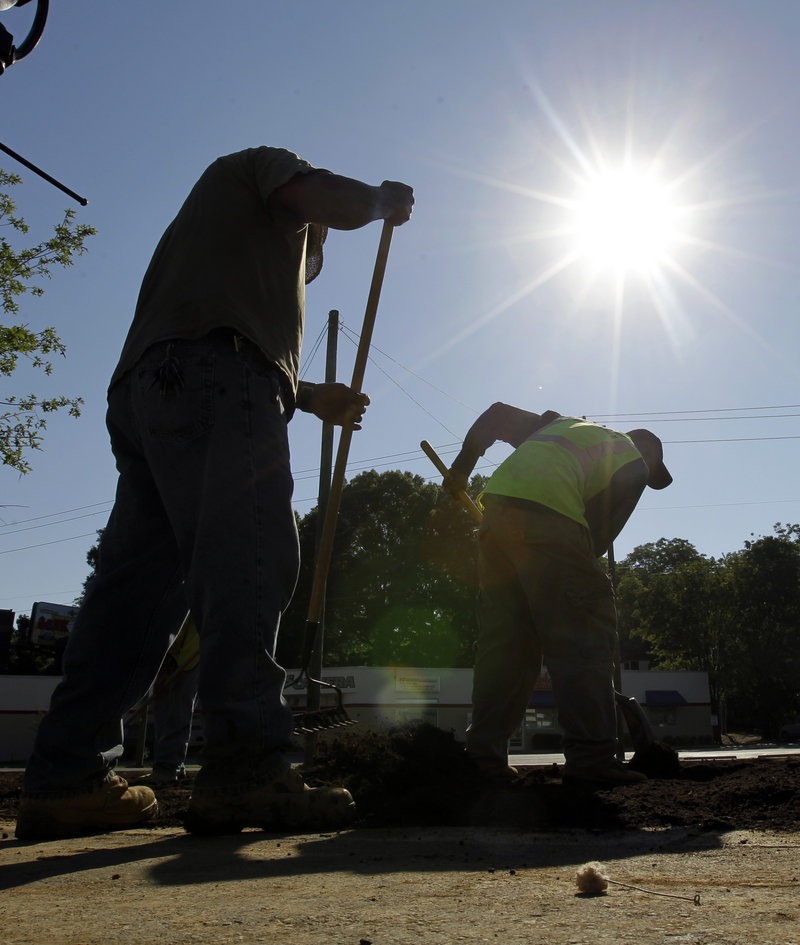HARPSWELL – Recently, Gov. LePage, our new Commissioner Darryl Brown of the Department of Environmental Protection and the business community have come under fire because there is a misconception that they intend to severely roll back environmental gains that date back to the 1970s.
Most businesses consistently support and want strong environmental compliance, to protect us today and for future generations. We all love to hike, fish, boat, breathe clean air and, in general, enjoy our precious state.
Most of the proposed changes are simple implementation modifications that need to occur. That includes streamlining permits, which in many cases could be as simple as using similar forms, definitions and standards for all DEP-regulated activities.
Over the years I have had many dealings and a great working relationship with the DEP. In fact, I personally became a DEP-certified professional contractor; recently our company has completed the program through Maine’s Non-Point Training Center. We made this commitment in order to be able to help our customers with permits. This was a program of certification in which we could do such things as install riprap along shore fronts and stream crossings with an expedited review.
This program and expedited process was then revoked during the last administration.
It’s unfortunate, because the program helped individual property owners comply with the rules while still protecting our environment.
We should be working to make compliance easier. Doing so will allow our customers to complete needed projects without long delays in the permitting process. It will also let them spend their funds carrying out these needed projects, instead of wasting time and money hiring consultants and lawyers to interpret what should be understandable and commonsense rules.
As I belong to construction-related trade associations, I have been closely involved with and am a strong advocate for expedited reviews. Maine now provides many great resources to help individuals complete them, including the Best Management Practices handbooks. The rules and objectives are in place so that compliance can be accomplished.
However, we have so many complicated rules that even some of our regulators need to study them to see what they really mean, which can make them subject to personal interpretation.
Another problem is that a lot of our environmental laws are federally mandated, which creates another issue. Oftentimes our state regulators go well above and beyond these federal mandates to the point where Maine taxpayers are forced to foot the bill on large studies and the interpretation of unproven science.
This is one area where Maine has earned its reputation as having an unfriendly business climate. Take vernal pools for example. Most states have reasonable setbacks, whereas Maine has again gone above and beyond the norm.
The setback buffers for vernal pools for the states in the Northeast are Maine, 250 feet; Massachusetts, 100 feet; Vermont and New Jersey, 50 feet; Maryland, 25 feet.
In New Hampshire, Rhode Island, Pennsylvania, New York, West Virginia and Delaware, there is no buffer requirement. Connecticut leaves it to local ordinances, while in Virginia, the buffer is 100 feet, but only if the pool is part of a larger wetlands area.
Maine’s 250-foot buffer is the largest in the Northeast, and there are some who wish to increase it up to 750 feet or more. Originally, only a handful of significant vernal pools were thought to exist. However, now we virtually all have one within a stone’s throw from where we live. Is there an old skidder rut on your property? It could be considered a vernal pool.
We must protect our world for future generations, but it’s not just cheap labor that drives our industries to foreign soil. In some cases, we have made the regulations so oppressive that we encourage industries to send factories to countries that have no environmental protections.
We need to work together to keep and attract business. Regulations do have an effect on the investment decisions. Looking beyond purely environmental issues, the question of permission to build often becomes, “Who gets our focus today?”
A person wishing to build a business facility that could employ many Mainers must please many state and federal agencies, including (but not limited to) the MSHA (Mine Safety and Health Administration), OSHA, DEP’s Air, Land or Solid Waste bureaus, Maine Revenue Service’s Income, Fuel or Sales Tax divisions, the State Fire Marshal’s Office, local codes enforcement, unemployment and workers compensation insurance, and Maine Department of Labor workplace safety.
Regardless of the merits of each one, the alphabet soup of agencies is simply overwhelming in many cases.
Without sacrificing our environment, we can work together better to make Maine more business-friendly and as a partner in our success — rather than as an adversary resulting in our defeat.
– Special to the Telegram
Send questions/comments to the editors.



Success. Please wait for the page to reload. If the page does not reload within 5 seconds, please refresh the page.
Enter your email and password to access comments.
Hi, to comment on stories you must . This profile is in addition to your subscription and website login.
Already have a commenting profile? .
Invalid username/password.
Please check your email to confirm and complete your registration.
Only subscribers are eligible to post comments. Please subscribe or login first for digital access. Here’s why.
Use the form below to reset your password. When you've submitted your account email, we will send an email with a reset code.